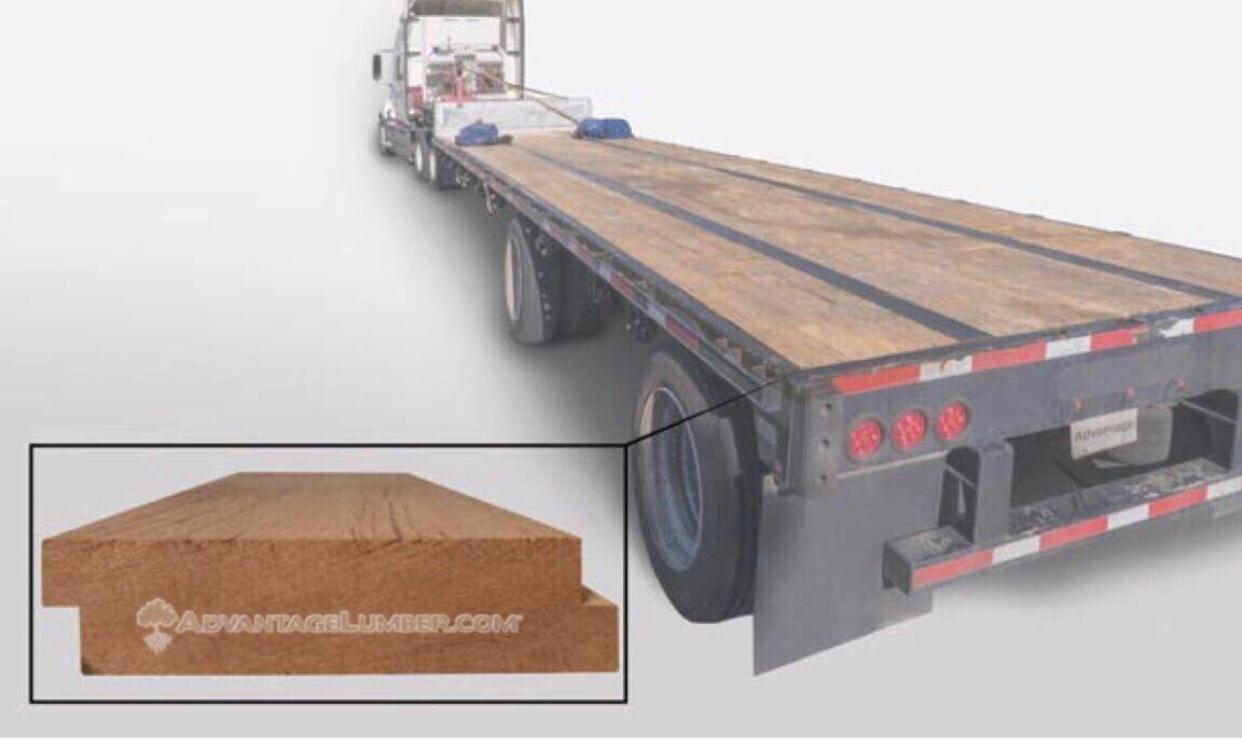Apitong trailer decking refers to the use of Apitong wood for constructing the decks of trailers, particularly flatbed trailers. Apitong, known scientifically as Dipterocarpus spp., is a type of hardwood native to Southeast Asia. It’s highly prized in the trucking and shipping industry for several reasons:
- Durability: Apitong is very durable and resistant to wear, making it ideal for the heavy-duty demands of transporting goods.
- Strength: The wood’s natural strength allows it to withstand heavy loads, which is a critical requirement for trailer decks that carry heavy equipment or goods.
- Resistance to Decay and Insects: Can vary depending on species sourced from, it is generally reported as moderately durable but moderate to poor insect resistance.
- Moisture Resistance: Its natural oils provide resistance to moisture, which is essential for wood used in outdoor environments and in various weather conditions.
- Repair and Maintenance: Despite its strength and durability, Apitong is relatively easy to repair and maintain, which is beneficial for the longevity of trailer decks.
Due to these properties, Apitong was often the preferred choice for trailer decking in industries that require the transportation of heavy goods, such as logging, construction, and heavy equipment transportation.
However the Apitong (Keruing) species has come under scrutiny lately. This wood species is not listed in the CITES Appendices, but many species of Dipterocarpus are on the IUCN Red List.
They are listed as critically endangered due to a population reduction of over 80% in the past three generations, caused by a decline in its natural range, and exploitation.
As a result Apitong has become harder to source and more expensive. Given the environmental concerns with the reduction of population of the species we recommend Brazilian Apitong instead.
When looking at the specifications of the two species below you can see the Brazilian Apitong has a Janka hardness that is nearly 3X harder. This means bulldozer tracks and other heavy machinery are will do significant less damage to Brazilian Apitong.
Brazilian Apitong is much stronger in every category listed below.
Apitong (Keruing)
Brazilian Apitong
Average Dried Weight: 46 lbs/ft3 (745 kg/m3)
Specific Gravity (Basic, 12% MC): .59, .74
Janka Hardness: 1,390 lbf (6,170 N)
Modulus of Rupture: 16,710 lbf/in2 (115.2 MPa)
Elastic Modulus: 2,293,000 lbf/in2 (15.81 GPa)
Crushing Strength: 8,900 lbf/in2 (61.4 MPa)
Shrinkage: Radial: 5.5%, Tangential: 10.8%, Volumetric: 16.3%, T/R Ratio: 2.0
Average Dried Weight: 67 lbs/ft3 (1070 kg/m3)
Specific Gravity (Basic, 12% MC): 0.79, 1.07
Janka Hardness: 3,160 lbf (14,050 N)
Modulus of Rupture: 22,550 lbf/in2 (156 MPa)
Elastic Modulus: 2,811,000 lbf/in2 (19.39 GPa)
Crushing Strength: 12,450 lbf/in2 (85.9 MPa)
Shrinkage: Radial: 5.4%, Tangential: 8.8%,
Volumetric: 14.3%, T/R Ratio: 1.6
Brazilian Apitong is also listed as very durable to rot resistance and offers good resistance to insect attack making it better than the Asian Apitong in that category as well.
In addition Brazilian Apitong is is not listed in the CITES Appendices or on the IUCN Red List of Threatened Species.
Brazilian Apitong is also more cost effective compared to the Apitong (Keruing) from Asia.
Advantage Lumber is the leading importer and manufacturer of Brazilian Apitong trailer decking. We import direct, sell direct and ship directly to you to help save you money. We also have great prices on trailer decking screws to help you complete your new trailer deck project.
